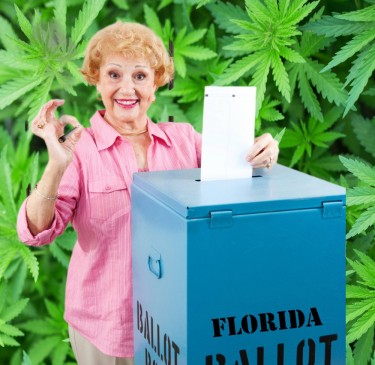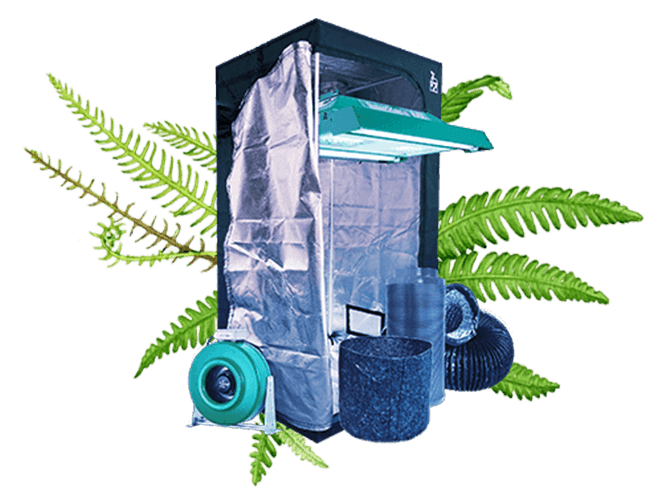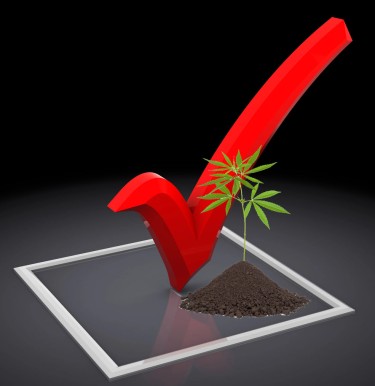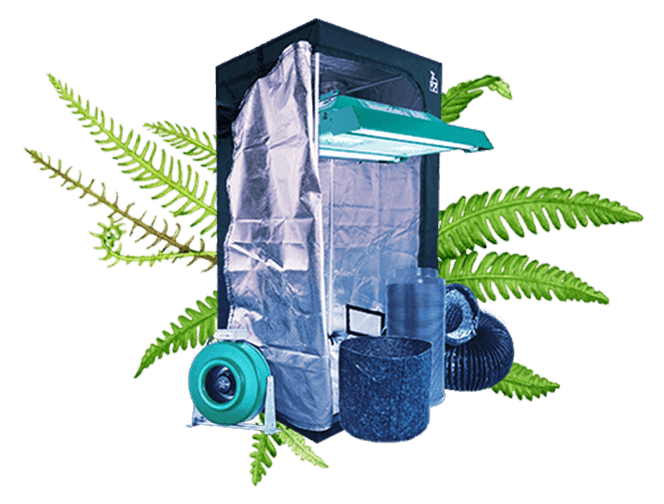Cannabis News
Can Florida Pull 60% of the Votes Needed on Election Night to Pass Legal Weed?
Published
4 months agoon
By
admin

In a blow to Gov. Ron DeSantis and other Florida conservatives opposed to the measure, the state’s Supreme Court on Monday approved a recreational marijuana constitutional amendment for the November 2024 statewide ballot.
The proposal, known as Amendment 3, will legalize the “non-medical personal use of marijuana products and marijuana accessories by an adult” 21 or older if approved by 60% or more of statewide voters. It would take effect six months after the election.
The cannabis industry may have a secret “ace card” up their sleeve if Ohio is any indication off liberal voter turnout. You may remember that Ohio voted on cannabis legalization and abortion rights on the same ballot and voting night last year. This dual liberal ballot caused a swell or women and liberals to hit the voting booths, passing both measures in the same night. Florida finds itself in the same situation this November, with abortion rights on the same ballot. A “two birds, one stone” voting night may happen again as more liberals and women come out to vote.
In 2021, the court rejected two proposed constitutional amendments for recreational marijuana. But this time five justices ruled favorably on the measure with only two opposing.
The amendment was the subject of a multi-million-dollar campaign, spearheaded by Smart & Safe Florida, a group that’s collected more than $40 million in recent years. Two dozen states have already legalized recreational weed.
The Florida amendment would allow non-medical marijuana possession of up to 3 ounces, with no more than 5 grams in concentrated form.
To get a measure on the Florida ballot, supporters must first get 891,523 signatures from residents. The Supreme Court then must decide whether the amendment language sticks to a single subject and isn’t misleading, which can be a difficult threshold to overcome.
But, for the majority of justices, it met that bar.
In light of those limited considerations, we approve the proposed amendment for placement on the ballot,” Justice Jamie Grosshans, appointed by Gov. Ron DeSantis, in the majority opinion.
The state Supreme Court Monday also effectively upheld a six-week abortion ban but also OK’d a ballot measure that would guarantee access to abortion, even further raising the stakes of an already pivotal presidential election.
Florida’s Attorney General Against Legalization of Recreational Cannabis
Ashley Moody, the attorney general of Florida, expressed her disapproval of the recreational marijuana ballot issue, claiming it was deceptive and did not satisfy the required requirements.
Additionally, Moody’s chastised the proposal for supposedly benefiting Trulieve, the biggest medicinal marijuana provider in the state and the main source of money for Smart & Safe Florida. Kim Rivers, the CEO of Trulieve, praised the court’s ruling and said she was looking forward to helping the campaign move closer to the autumn ballot.
The legalization of medical marijuana in Florida stemmed from a 2016 ballot measure approved by over 71% of voters. Previous polls have indicated broad support among Floridians for the 2024 recreational marijuana measure.
While Governor DeSantis, who has appointed five of the court’s seven justices, had anticipated the court’s approval of the recreational marijuana measure, he recently expressed concerns about its potential impact. Specifically, he mentioned worries about the odor and the lack of restrictions on where and when marijuana could be consumed, including near schools. He criticized the broad language of the amendment, stating it was the most extensive he had encountered.
Justice Meredith Sasso, appointed by DeSantis and one of the dissenting voices, believed the amendment misled voters, citing its language regarding the “allowance” of recreational marijuana.
Moody argued in court filings that describing the amendment as “allowing” marijuana use is misleading, as marijuana remains illegal federally, despite its legality in over 20 other states. However, Justice Grosshans, writing for the majority, found the amendment’s summary not misleading, noting the court’s prior rulings on medical marijuana and its jurisdiction over state, not federal, law.
Potential Implications for Florida’s Cannabis Industry
There has been much conjecture on the significant consequences that Amendment 3’s passage by the Florida Supreme Court may have for the state’s rapidly expanding cannabis sector. Leading companies in the field, including Florida’s well-known medical marijuana supplier Trulieve, are positioned to profit from the growing market as recreational marijuana use gets closer to approval. With the potential to solidify its position as a leading participant in the medical and recreational cannabis sectors, Trulieve’s significant financial support of Smart & Safe Florida’s campaign highlights the company’s strategic interest in the amendment’s successful passage.
However, alongside established players like Trulieve, the legalization of recreational marijuana is expected to spur increased competition within Florida’s cannabis market. As the state opens its doors to non-medical cannabis use, new entrants are likely to emerge, seeking to seize a slice of the lucrative market pie. This influx of competition could lead to innovations in product offerings, retail experiences, and branding strategies as companies vie for consumer attention and loyalty in an increasingly crowded marketplace.
Furthermore, Amendment 3’s adoption is likely to change Florida’s cannabis laws about retail, wholesale, and growing. The elements of the amendment, such as possession limitations and regulatory frameworks, will be crucial in determining the operational parameters that enterprises in the state’s cannabis market must adhere to. Stakeholders in the sector are keeping a close eye on changes as politicians and regulatory bodies strive to create rules for compliance and enforcement. This is so they can efficiently manage the constantly changing regulatory landscape.
Political Ramifications and Public Opinion on Recreational Marijuana
The approval of Amendment 3 by the Florida Supreme Court not only carries significant implications for the state’s cannabis industry but also holds substantial political ramifications. Governor Ron DeSantis, who has appointed the majority of the justices on the court, had previously expressed mixed sentiments regarding the legalization of recreational marijuana. While anticipating the court’s approval, DeSantis recently voiced concerns about potential societal impacts, including odor concerns and the absence of stringent consumption restrictions, especially in proximity to educational institutions.
In addition to DeSantis’s stance, the passage of Amendment 3 amplifies the ongoing discourse surrounding recreational marijuana at both the state and national levels. Florida’s Attorney General, Ashley Moody, echoed concerns about the amendment’s language and its potential to mislead voters. The debate surrounding the amendment reflects broader discussions on the legalization of cannabis across the United States, with advocates emphasizing social equity, criminal justice reform, and economic opportunities, while opponents highlight public health and safety concerns.
The public’s perception of marijuana use for recreational purposes in Florida seems to be changing despite differing opinions. Voters overwhelmingly supported the legalization of medical marijuana in 2016, demonstrating the increasing acceptability of cannabis use for therapeutic purposes. Recent polling indicates a similar trend in support of legalizing cannabis for recreational use, reflecting Floridians’ changing views on the drug. The result of the Amendment 3 vote will not only influence Florida’s cannabis industry but also act as a gauge for larger social views toward marijuana legalization in the US as the state prepares for the November 2024 election.
Bottom Line
The approval of Amendment 3 by the Florida Supreme Court marks a significant milestone in the state’s journey towards the potential legalization of recreational marijuana. Despite opposition from Governor Ron DeSantis and other conservatives, the amendment’s passage signals a shift in public opinion and could have far-reaching consequences for Florida’s cannabis industry, political landscape, and societal norms. As stakeholders navigate the evolving regulatory environment and prepare for the upcoming ballot in November 2024, all eyes will be on the outcome of the vote and its impact on the future of marijuana policy in the Sunshine State.
ABORTION AND WEED TOGETHER, READ ON…
You may like
-


Pot prohibition costs Florida at least $200 million per year
-


Union’s initiative to organize Oregon marijuana workers nears ballot
-


Cannabis and Mental Health: Recent Research and Implications
-


Why You Shouldn’t Vote for Kamala Harris Just Because of Her Position on Cannabis- Banana in the Tailpipe, Again?
-


Your Trusted Amsterdam Seed Bank – Powered by Mother Nature, Breeding since 1996
-


Sam Hilliard’s clutch homer, Ezequiel Tovar’s walk-off send Rockies to win over Red Sox in 12 innings
Cannabis News
Why You Shouldn’t Vote for Kamala Harris Just Because of Her Position on Cannabis- Banana in the Tailpipe, Again?
Published
2 days agoon
July 25, 2024By
admin

Why you shouldn’t base your vote on Harris’ Cannabis Stance
As a long-time observer of the political circus, I’ve seen my fair share of grand promises and lackluster deliveries. It’s an age-old dance: politicians, with their eyes on the prize, will say just about anything to secure your vote. They’ll promise the moon, the stars, and a side of universal healthcare, only to serve up a watered-down version of their campaign pledges once in office. It’s not necessarily malicious; it’s just the nature of the beast we call politics.
Now, with Biden stepping aside and rumors swirling about his health, all eyes are on Kamala Harris as the potential next Democratic presidential candidate. I’ve been hearing a lot of chatter, especially in cannabis circles, about throwing support behind Harris if she promises to legalize weed. And I get it, I really do. Cannabis reform is a critical issue for many of us.
But here’s where I need to pump the brakes and offer a word of caution: basing your vote on a single issue, especially one as prone to political flip-flopping as cannabis legalization, is a risky game. Remember the Biden-Harris ticket’s promises of criminal justice reform? How many people actually walked free from cannabis possession charges? The answer might disappoint you.
Before you pin all your hopes on Harris’s cannabis stance, let’s take a closer look at her history with the issue and why political promises, especially when it comes to weed, should be taken with a hefty dose of skepticism. After all, in the world of politics, today’s firm stance could be tomorrow’s convenient pivot.
As we dive deep into Kamala Harris’s political career, it’s a tale of evolving stances and convenient shifts that mirror the changing tides of public opinion on cannabis. Let’s start at the beginning, shall we?
During her tenure as California’s Attorney General from 2011 to 2017, Harris oversaw the conviction of nearly 2,000 people on marijuana-related charges. That’s right, the same woman now championing cannabis reform was once responsible for putting people behind bars for the very thing she now supports legalizing. It’s a stark reminder of how quickly political winds can change – or how quickly politicians can change with them.
Fast forward to the 2020 Democratic primaries, and we see a different Harris. Despite her initial buzz as a top contender, her campaign fizzled out faster than a poorly rolled joint. She dropped out before the Iowa caucuses, trailing far behind other candidates. It was a humbling experience that likely prompted some serious strategizing about her political future.
Then came the VP selection. Suddenly, Harris found herself on a ticket with Joe Biden, a man who had built much of his early career on being tough on drugs. It’s worth noting that Biden, too, has done some impressive political gymnastics on this issue. From being a key architect of punitive drug laws to now pardoning federal marijuana possession convictions, Biden’s evolution mirrors Harris’s own pivot.
As a Senator, Harris did introduce pro-cannabis legislation. The Marijuana Opportunity Reinvestment and Expungement (MORE) Act was a step in the right direction, aiming to decriminalize marijuana at the federal level. But let’s be real – introducing a bill is a far cry from getting it passed, especially when you’re no longer in the legislative branch.
Recently, Harris has been vocal about cannabis reform. She’s called for speeding up the reclassification of marijuana and has stated that “nobody should have to go to jail for smoking weed.” It’s a far cry from her days as AG, isn’t it?
But here’s where the rubber meets the road – or should I say, where the joint meets the lips. Despite all the big talk from the Biden-Harris administration about reform, what we’ve actually seen is disappointingly little. In four years, with a Democratic majority, they’ve failed to pass any significant cannabis legislation. Instead, we’re left with a proposal to reschedule cannabis to Schedule III – a move that feels more like a bone thrown to Big Pharma than true reform for the people.
And now, with the rescinding of the Chevron Doctrine, even this watered-down attempt at reform is likely to be tied up in legal battles for years. It’s a bureaucratic nightmare that does little to address the real issues faced by cannabis users and those imprisoned for marijuana offenses.
Here’s the kicker – this isn’t even the reform that most cannabis advocates want. We’re not looking for a slight shuffling of bureaucratic categories. We want full descheduling. We want cannabis treated like the plant it is, not a controlled substance. Anything short of that is just maintaining the status quo with a slightly friendlier face.
So, when we look at Harris’s cannabis stance, let’s not forget this context. It’s a stance that has conveniently evolved with public opinion, but still falls short of meaningful change. It’s a reminder that in politics, what’s promised on the campaign trail often bears little resemblance to what’s delivered in office.
As someone who’s been around the political block a few times, I’ve seen far too many people fall into the trap of single-issue voting. It’s understandable – we all have causes close to our hearts, issues that ignite our passions. For some, it’s cannabis legalization; for others, it might be gun rights or abortion. But here’s the hard truth: voting based on a single issue is like buying a car solely because you like its color.
Politicians, my friends, don’t exist in a vacuum. They’re part of a larger system, a complex web of party politics, special interests, and power dynamics. When you vote for a candidate based on their stance on cannabis, you’re not just getting their weed policy – you’re getting the whole package. And let me tell you, that package often includes a lot of things you might not be so keen on.
Take a step back and look at the bigger picture. Both major parties, despite their apparent differences, often align on issues that directly impact our daily lives. They’re both pro-war, pro-big pharma, pro-big banks. They might squabble over social issues, but when it comes to the core economic and foreign policies that shape our world, they’re often two sides of the same coin.
This is why we desperately need more diversity in our political system. The two-party structure is a relic that’s long outlived its usefulness. It pits American against American, reducing complex issues to simplistic “us vs. them” narratives. It’s a system that thrives on division, not unity.
But here’s where I really want you to pay attention: if you want to see real change, start local. National elections might get all the glitz and glamour, but the nitty-gritty work of democracy happens in your town halls, your city councils, your state legislatures. That’s where policies that directly affect your daily life are hammered out. Want to see cannabis reform? Start by engaging with your local government.
The folks in Washington? They’re in a different world. They’re surrounded by lobbyists, insulated from the day-to-day struggles of average Americans. They’re more likely to hear the concerns of a pharmaceutical CEO than those of a small-time cannabis grower or a patient seeking alternative medicine.
So here’s my advice: break free from party loyalty. Look at the facts, examine the principles behind the policies. Most importantly, judge politicians not just by their words, but by their actions. How often do they follow through on their promises? How consistent are they in their principles?
Critical thinking is key here. Don’t just swallow what the media or the politicians are feeding you. Question everything. Analyze. Compare. And remember, your vote is precious – it’s your voice in this democracy. Don’t give it away based on a single issue or a catchy slogan.
In the end, politics is about the big picture. It’s about the kind of society we want to live in, the values we want to uphold. So the next time you’re in that voting booth, think beyond the single issue. Look at the whole cake, not just the cherry on top. Your future – our future – depends on it.
KAMALA ON CANNABIS REFORM, READ ON…
Cannabis News
A Beginner’s Guide to Setting Up a Cannabis Grow Tent » How to Grow Weed Indoors
Published
4 days agoon
July 22, 2024By
admin
Cannabis cultivation at home has gained immense popularity, particularly with the legalization of recreational and medical marijuana in many regions, so reading A Beginner’s Guide to Setting Up a Cannabis Grow Tent will be helpful.
A grow tent is an ideal solution for those looking to create a controlled environment for their cannabis plants. This beginner’s guide to setting up a cannabis grow tent will walk you through the essential steps and considerations to ensure a successful and fruitful grow.
Why Choose a Grow Tent?
A grow tent offers numerous advantages, including:
- Controlled Environment: Grow tents allow you to control light, temperature, humidity, and airflow, creating optimal conditions for your plants.
- Pest and Odor Management: The enclosed space helps keep pests out and contains odors, making indoor cultivation more manageable.
- Discreet and Space-Efficient: Grow tents come in various sizes, fitting easily into small apartments or spare rooms.
Essential Components for Your Grow Tent
Before setting up your grow tent, it’s crucial to gather all the necessary components:
- Grow Tent: Choose a tent size that fits your space and growing needs. Common sizes include 2×2, 3×3, and 4×4 feet.
- Grow Lights: LED, HID (High-Intensity Discharge), and CFL (Compact Fluorescent Lights) are popular choices. LED lights are energy-efficient and produce less heat.
- Ventilation System: Includes inline fans, ducting, and carbon filters to ensure proper airflow and odor control.
- Grow Medium: Soil, coco coir, or hydroponic systems. Each medium has its pros and cons.
- Nutrients: Essential for plant growth. Choose a nutrient line designed for cannabis.
- Pots or Containers: Fabric pots are popular for their breathability and drainage.
- Thermometer and Hygrometer: To monitor temperature and humidity levels.
- Timers: To automate light schedules.
- pH and EC Meters: To test water and nutrient solution quality.
Step-by-Step Guide to Setting Up Your Grow Tent
1. Choose the Right Location
Select a location that is discreet, has access to electricity, and can handle occasional spills or water leaks. Ensure the area has enough space to accommodate your tent and allow for easy access.
2. Assemble Your Grow Tent
Follow the manufacturer’s instructions to assemble your grow tent. Ensure all zippers, seams, and poles are securely in place. Check for light leaks, as even small leaks can disrupt your plants’ light cycle.
3. Install the Grow Lights
Mount your grow lights at the appropriate height above the canopy. LED lights typically need to be 18-24 inches above the plants, while HID lights require more distance due to their higher heat output. Connect your lights to a timer to automate the light cycle, providing 18 hours of light and 6 hours of darkness during the vegetative stage, and 12 hours of light and 12 hours of darkness during the flowering stage.
4. Set Up the Ventilation System
Proper ventilation is crucial for maintaining temperature, humidity, and CO2 levels. Install an inline fan and ducting to exhaust hot air from the tent. Position the fan near the top of the tent where heat accumulates. Connect the ducting to a carbon filter to eliminate odors. Consider adding an oscillating fan inside the tent to promote air circulation and strengthen plant stems.
5. Prepare the Growing Medium
Fill your pots or containers with the chosen growing medium. If using soil, opt for a high-quality, well-draining mix. For coco coir or hydroponic systems, ensure the medium is pre-soaked and buffered as needed. Place your containers inside the grow tent, leaving enough space between them for air circulation and growth.
6. Plant Your Cannabis Seeds
Germinate your cannabis seeds using your preferred method, such as the paper towel method or directly planting them in the growing medium. Once germinated, plant the seeds in your prepared pots, covering them lightly with soil or medium.
7. Water and Feed Your Plants
Water your plants with pH-balanced water (6.0-7.0 for soil, 5.5-6.5 for coco coir and hydroponics). Start with small amounts and gradually increase as the plants grow. Introduce nutrients according to the manufacturer’s guidelines, starting with a quarter to half strength for young plants and increasing as they mature. Monitor the plants for signs of nutrient deficiencies or excesses.
8. Monitor Temperature and Humidity
Maintain optimal temperature (70-85°F) and humidity levels (40-70%) using a thermometer and hygrometer. Adjust the ventilation system and use humidifiers or dehumidifiers as needed to keep conditions within the ideal range.
9. Train and Prune Your Plants
Training techniques like topping, low-stress training (LST), and the Screen of Green (ScrOG) method can maximize light exposure and promote even canopy growth. Prune lower leaves and branches to improve airflow and focus energy on bud development.
10. Monitor and Adjust Light Height
As your plants grow, adjust the height of your grow lights to prevent light burn and ensure even coverage. Follow the manufacturer’s recommendations for light distance and intensity.
11. Monitor pH and EC Levels
Regularly test the pH and electrical conductivity (EC) of your water and nutrient solution to ensure they are within the optimal range. Adjust as needed to prevent nutrient lockout and deficiencies.
12. Harvest Your Cannabis Plants
When the plants reach maturity, typically 8-12 weeks into the flowering stage, it’s time to harvest. Look for signs of readiness, such as the color of the pistils and trichomes. Cut the plants at the base and hang them upside down in a dark, well-ventilated area to dry. After drying, trim the buds and cure them in airtight containers to enhance flavor and potency.
Tips for a Successful Grow Tent Experience
- Start Small: Begin with a small tent and a few plants to learn the basics before scaling up.
- Keep a Grow Journal: Document your grow, noting dates, feeding schedules, and observations to help you learn and improve.
- Research and Learn: Continuously educate yourself about cannabis cultivation techniques and stay updated with the latest trends and technologies.
- Be Patient: Growing cannabis requires time and attention. Be patient and consistent in your care routine.
- Join Online Communities: Engage with other growers on forums and social media platforms to share experiences and seek advice.
Common Mistakes to Avoid
- Overwatering: Allow the growing medium to dry out slightly between watering to prevent root rot.
- Incorrect pH Levels: Regularly test and adjust pH to ensure nutrient availability.
- Light Leaks: Seal any light leaks to maintain the correct light cycle for your plants.
- Overfeeding: Start with lower nutrient concentrations and increase gradually to avoid nutrient burn.
- Poor Ventilation: Ensure adequate airflow to prevent mold and mildew growth.
Conclusion
Setting up a cannabis grow tent can be a rewarding and enjoyable experience for beginners. By following this guide and paying close attention to the needs of your plants, you can create a thriving indoor garden and enjoy the fruits of your labor. Remember to start small, stay informed, and be patient as you develop your skills as a cannabis cultivator. Happy growing!
Please Share This Important Article
Cannabis News
Nutrient Management for Indoor Cannabis Plants Tips and Tricks » How to Grow Weed Indoors
Published
4 days agoon
July 22, 2024By
admin
Growing cannabis indoors has become increasingly popular due to the control it offers over the growing environment, thus Nutrient Management for Indoor Cannabis Plants is important.
One of the most critical aspects of successful indoor cannabis cultivation is proper nutrient management. Understanding the right nutrients and their application can significantly impact the health and yield of your plants. This article provides comprehensive tips and tricks for effective nutrient management for indoor cannabis plants.
Understanding Cannabis Nutrients
Cannabis plants require a variety of nutrients to thrive, which are typically categorized into macronutrients and micronutrients.
Macronutrients
- Nitrogen (N): Essential for vegetative growth, nitrogen plays a vital role in photosynthesis and the development of plant tissues.
- Phosphorus (P): Crucial during the flowering stage, phosphorus supports root development and energy transfer within the plant.
- Potassium (K): Potassium aids in water uptake, enzyme activation, and overall plant health, enhancing the plant’s resistance to diseases.
Micronutrients
- Calcium (Ca): Important for cell wall structure and growth.
- Magnesium (Mg): Central to chlorophyll production and photosynthesis.
- Sulfur (S): Vital for amino acid production and enzyme function.
- Iron (Fe), Manganese (Mn), Zinc (Zn), Copper (Cu), Boron (B), Molybdenum (Mo), and Chlorine (Cl): These trace elements are required in smaller quantities but are essential for various biochemical processes.
Choosing the Right Nutrients
Organic vs. Synthetic Nutrients
- Organic Nutrients: Derived from natural sources, organic nutrients improve soil health and promote beneficial microbial activity. They release nutrients slowly, reducing the risk of nutrient burn.
- Synthetic Nutrients: These are chemically formulated to provide immediate nutrient availability. They are highly concentrated and can be precisely measured and adjusted.
Nutrient Ratios
During different growth stages, cannabis plants require varying nutrient ratios:
- Vegetative Stage: Higher nitrogen levels to support leaf and stem growth. A typical N-P-K (Nitrogen-Phosphorus-Potassium) ratio for this stage might be 3-1-2.
- Flowering Stage: Increased phosphorus and potassium to support bud development. An ideal N-P-K ratio might be 1-3-2.
Tips for Effective Nutrient Management
1. Start with a Quality Growing Medium
The growing medium significantly impacts nutrient availability. Common choices include soil, coco coir, and hydroponics:
- Soil: Rich in organic matter, soil can retain nutrients and provide a buffering effect.
- Coco Coir: Offers good aeration and water retention, but requires additional calcium and magnesium.
- Hydroponics: Provides direct access to nutrients in water, allowing precise control but requiring diligent monitoring.
2. pH Management
Maintaining the correct pH level is crucial for nutrient uptake. For soil, aim for a pH of 6.0-7.0, while hydroponics and coco coir should be between 5.5-6.5. Use pH meters or test kits to regularly check and adjust the pH.
3. Gradual Nutrient Introduction
Introduce nutrients gradually, especially for seedlings and young plants. Start with a quarter to half of the recommended dose and gradually increase as the plants mature.
4. Monitor for Nutrient Deficiencies and Toxicities
Regularly inspect your plants for signs of nutrient deficiencies (yellowing leaves, stunted growth) and toxicities (leaf burn, nutrient lockout). Early detection allows for timely adjustments.
5. Use a Feeding Schedule
Establish a consistent feeding schedule based on the plant’s growth stage. Many growers use a weekly schedule, alternating between feeding and watering.
6. Flush the Plants
Flushing involves running plain water through the growing medium to remove excess salts and nutrient buildup. This is particularly important before the harvest to improve the taste and quality of the buds.
7. Supplement with Beneficial Microbes
Inoculating the growing medium with beneficial microbes can enhance nutrient availability and promote plant health. Products containing mycorrhizal fungi and beneficial bacteria can be highly effective.
Advanced Tips for Optimizing Nutrient Management
1. Tailor Nutrients to Specific Strains
Different cannabis strains may have varying nutrient requirements. Researching the specific needs of your chosen strain can help optimize growth and yield.
2. Employ Foliar Feeding
Foliar feeding involves spraying a nutrient solution directly onto the leaves. This can provide a quick nutrient boost and correct deficiencies rapidly. However, it should complement, not replace, root feeding.
3. Utilize Automated Feeding Systems
Automated feeding systems can ensure consistent nutrient delivery, particularly in hydroponic setups. These systems can be programmed to provide precise amounts of nutrients at scheduled intervals.
4. Integrate CO2 Enrichment
Enriching the grow room with CO2 can enhance photosynthesis and nutrient uptake, leading to faster growth and higher yields. Ensure proper ventilation and monitor CO2 levels to avoid overexposure.
5. Experiment with Additives
Various additives, such as amino acids, enzymes, and vitamins, can boost plant health and productivity. Experimenting with different products can help identify what works best for your setup.
Troubleshooting Common Nutrient Issues
1. Nutrient Burn
- Symptoms: Leaf tips turning brown and crispy.
- Solution: Reduce nutrient strength and flush the growing medium with plain water.
2. Nutrient Lockout
- Symptoms: Yellowing leaves despite adequate feeding.
- Solution: Check and adjust pH levels, and flush the medium to remove salt buildup.
3. Nutrient Deficiencies
- Nitrogen Deficiency: Yellowing lower leaves.
- Phosphorus Deficiency: Dark, discolored leaves with purple stems.
- Potassium Deficiency: Yellowing edges and brown spots on leaves.
Regularly monitoring and adjusting your nutrient regimen can prevent these issues from escalating.
Conclusion
Effective nutrient management is essential for the successful cultivation of indoor cannabis plants. By understanding the specific needs of your plants and tailoring your nutrient regimen accordingly, you can maximize growth and yield. Remember to maintain the right pH levels, introduce nutrients gradually, and monitor your plants closely for signs of deficiencies and toxicities. Employing advanced techniques such as foliar feeding, automated systems, and CO2 enrichment can further optimize your results. With careful attention and a proactive approach, you can ensure your indoor cannabis plants thrive, producing high-quality, potent buds.
Please Share This Important Article

Pot prohibition costs Florida at least $200 million per year

Union’s initiative to organize Oregon marijuana workers nears ballot

Cannabis and Mental Health: Recent Research and Implications

Why You Shouldn’t Vote for Kamala Harris Just Because of Her Position on Cannabis- Banana in the Tailpipe, Again?

Your Trusted Amsterdam Seed Bank – Powered by Mother Nature, Breeding since 1996

Sam Hilliard’s clutch homer, Ezequiel Tovar’s walk-off send Rockies to win over Red Sox in 12 innings

Keeler: Trevor Story returned to Denver, but it was Rockies fan, transplant survivor who rocked Coors Field

As Trevor Story returns to Coors Field for first time since signing with Red Sox, injury-riddled shortstop remains confident he can regain old form

More RTD "slow zones" added as summer repairs move forward

Canadian wildfire smoke triggers poor air quality, health advisories in Colorado

Distressed Cannabis Business Takeaways – Canna Law Blog™

United States: Alex Malyshev And Melinda Fellner Discuss The Intersection Of Tax And Cannabis In New Video Series – Part VI: Licensing (Video)

What you Need to Know

Drug Testing for Marijuana – The Joint Blog

Cannabis, alcohol firm SNDL loses CA$372.4 million in 2022

NCIA Write About Their Equity Scholarship Program

It has been a wild news week – here’s how CBD and weed can help you relax

City Of Oakland Issues RFP For Employee Training Programs

A new April 20 cannabis contest includes a $40,000 purse

Your Go-To Source for Cannabis Logos and Designs
Trending
-

 Cannabis News1 year ago
Cannabis News1 year agoDistressed Cannabis Business Takeaways – Canna Law Blog™
-

 One-Hit Wonders1 year ago
One-Hit Wonders1 year agoUnited States: Alex Malyshev And Melinda Fellner Discuss The Intersection Of Tax And Cannabis In New Video Series – Part VI: Licensing (Video)
-

 Cannabis 1011 year ago
Cannabis 1011 year agoWhat you Need to Know
-

 drug testing7 months ago
drug testing7 months agoDrug Testing for Marijuana – The Joint Blog
-

 Marijuana Business Daily1 year ago
Marijuana Business Daily1 year agoCannabis, alcohol firm SNDL loses CA$372.4 million in 2022
-

 Education1 year ago
Education1 year agoNCIA Write About Their Equity Scholarship Program
-

 Cannabis1 year ago
Cannabis1 year agoIt has been a wild news week – here’s how CBD and weed can help you relax
-

 Education1 year ago
Education1 year agoCity Of Oakland Issues RFP For Employee Training Programs








